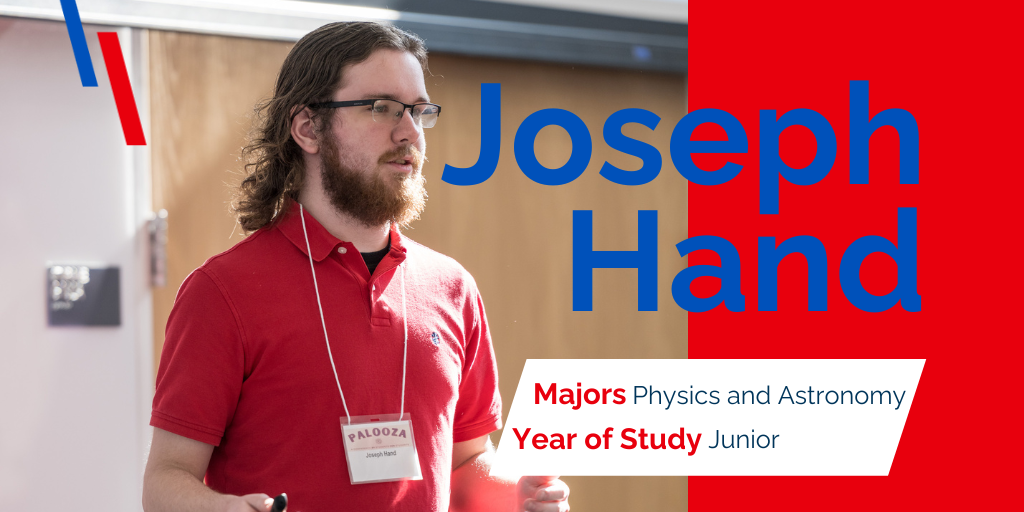
The University of Kansas is no stranger to research, and neither is junior Joseph Hand. With a long-standing passion for mathematics and the natural sciences, Hand now uses his interests and skills to double major in physics and astronomy.
Hand’s favorite part of his time at the university is the various research projects he has been involved in. This summer, he completed an internship at the Berkeley SETI Research Center at the University of California Berkeley focused on researching extraterrestrial intelligence – yep, that means aliens.
His time at the College and well-rounded education has led him to want to be on the other side of the classroom as a professor.
Where are you from? Why did you decide to come to KU?
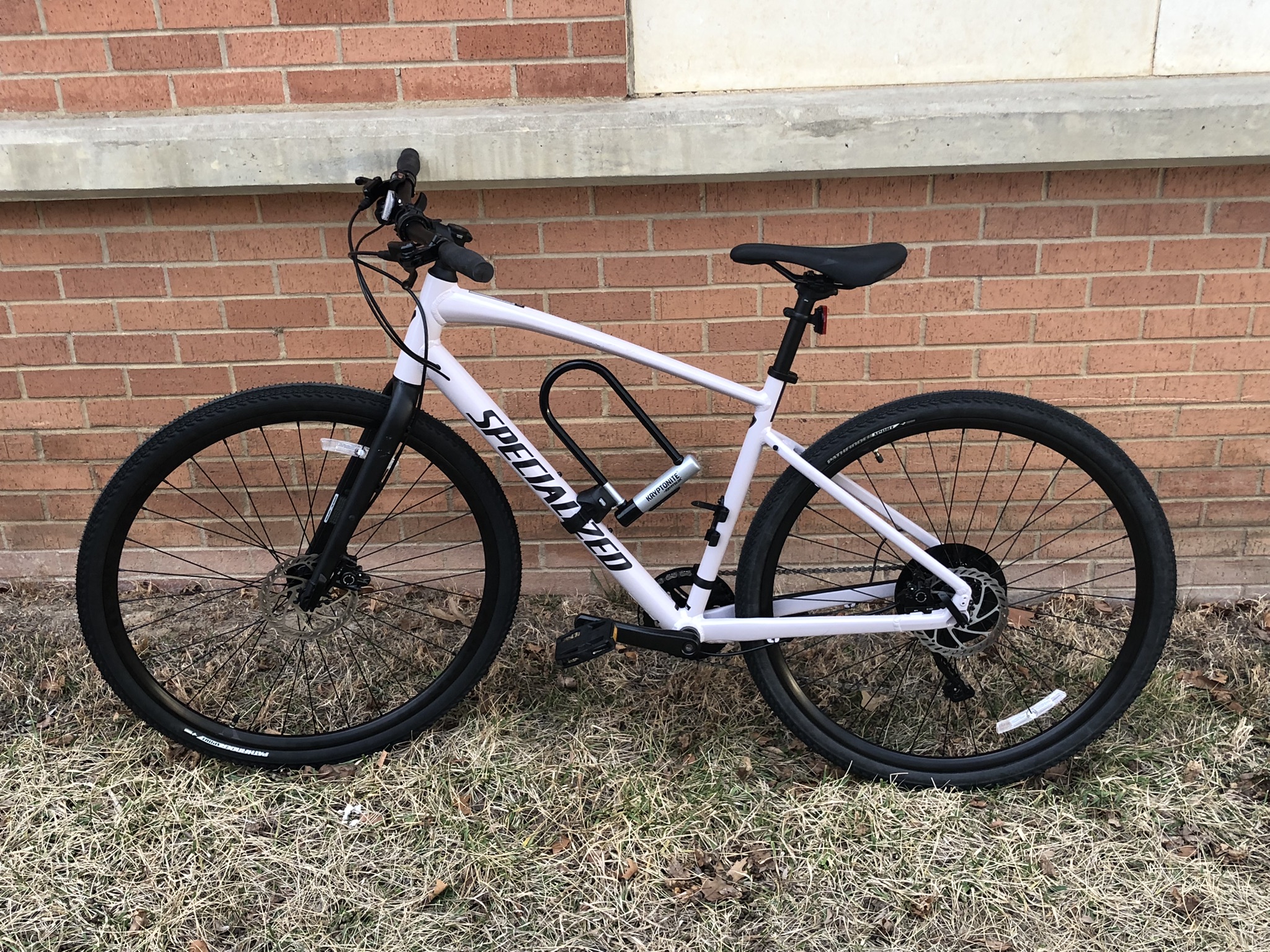
I grew up in Wisconsin and Washington, but my family currently lives in the Kansas City Area. I decided to come to KU for multiple reasons: Its fairly nearby and not too expensive (compared to many other universities), but it is still a leading research institution, and is greatly involved with research in my fields.
Why did you choose your majors? Was there a moment when you decided this is what you wanted to study?
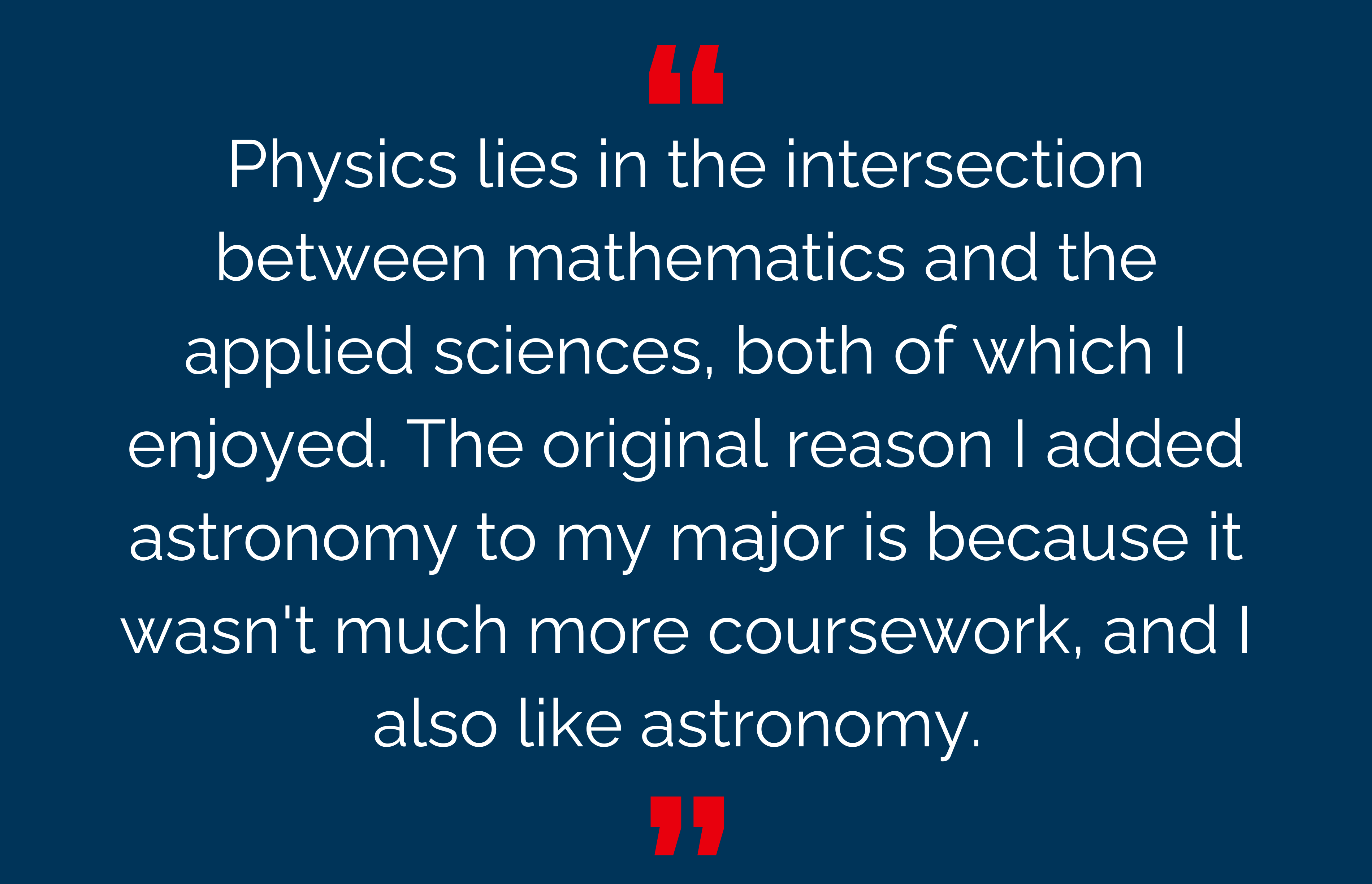
I was always interested in mathematics and the natural sciences, and I spent a lot of my childhood switching between them as my biggest interest. I only really settled on physics as being the areas I wanted to study when I went to community college and started taking introductory physics courses. At that time, I wanted to go into mathematics or computer science, but I really enjoyed these physics courses. Physics lies in the intersection between mathematics and the applied sciences, both of which I enjoyed. The original reason I added astronomy to my major is because it wasn’t much more coursework, and I also like astronomy. However, after taking astronomy courses at KU and participating in research, I found I enjoyed it more than physics. The two majors also complement each other very well, as most astronomy heavily utilizes concepts in physics.
What is the most exciting part of your majors? What do you think is most valuable about your experiences in these programs?
My answer to both of these is simply “research.” In physics and astronomy, coursework can only take you so far, but actually getting involved with research in the fields, of which there is plenty at KU, is far more exciting. You get to work with faculty here performing cutting edge research in many different areas, answering questions that and doing things that no one has done before, which is not only exciting, but also indispensable for anyone like me looking for a career in research, as these experience most closely match what those careers are like.
What is the benefit of being in the KU College alongside students studying sciences, arts, and humanities?
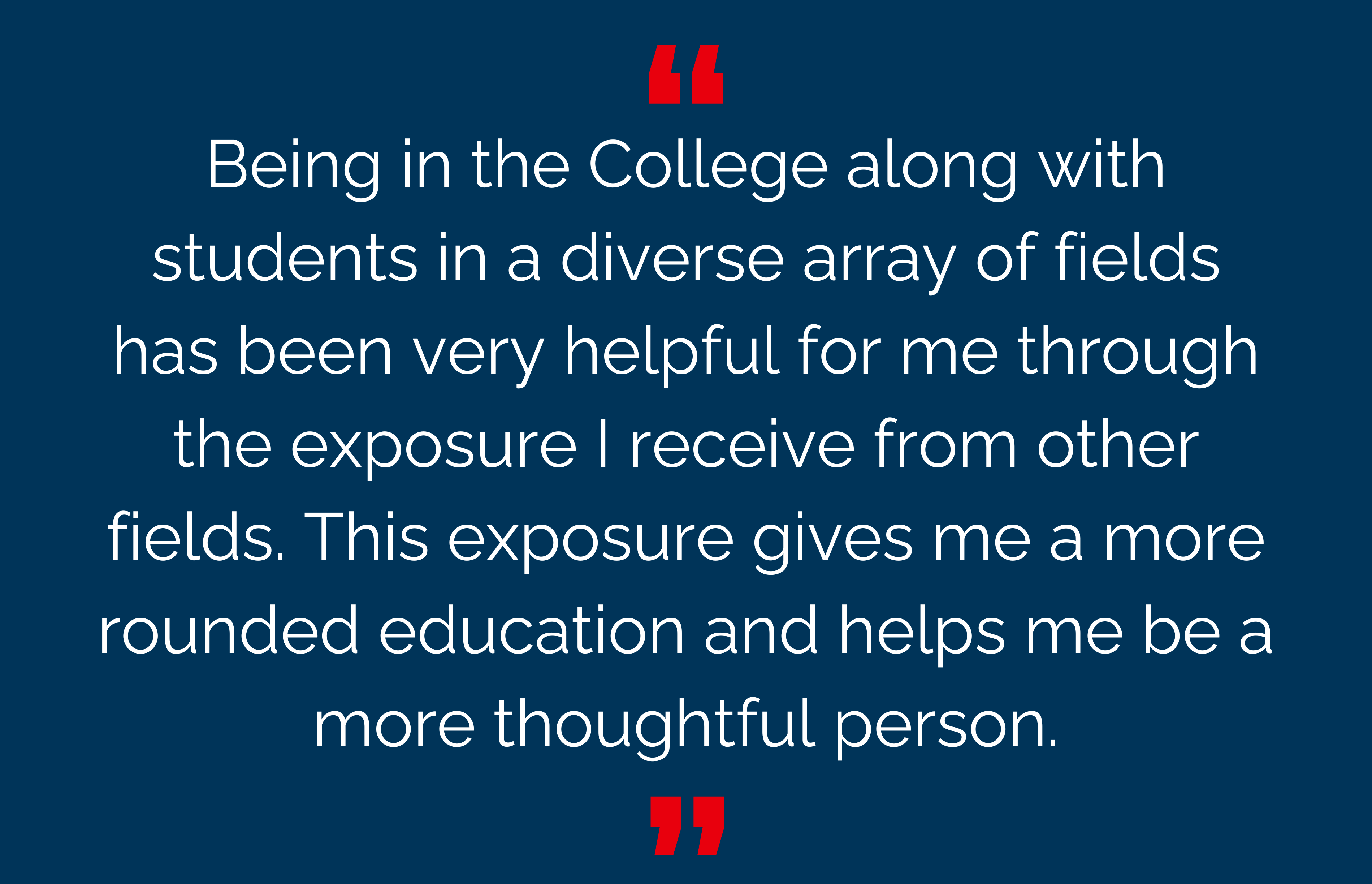
Being in the College along with students in a diverse array of fields has been very helpful for me through the exposure I receive from other fields. This exposure gives me a more rounded education and helps me be a more thoughtful person. This has also given me the opportunity to explain my work to people who are not experts in my field, which is also helpful, as I find explaining something is one of the best ways to learn.
Have you done any internships, study abroad programs, or any other learning experiences you’d like to share?
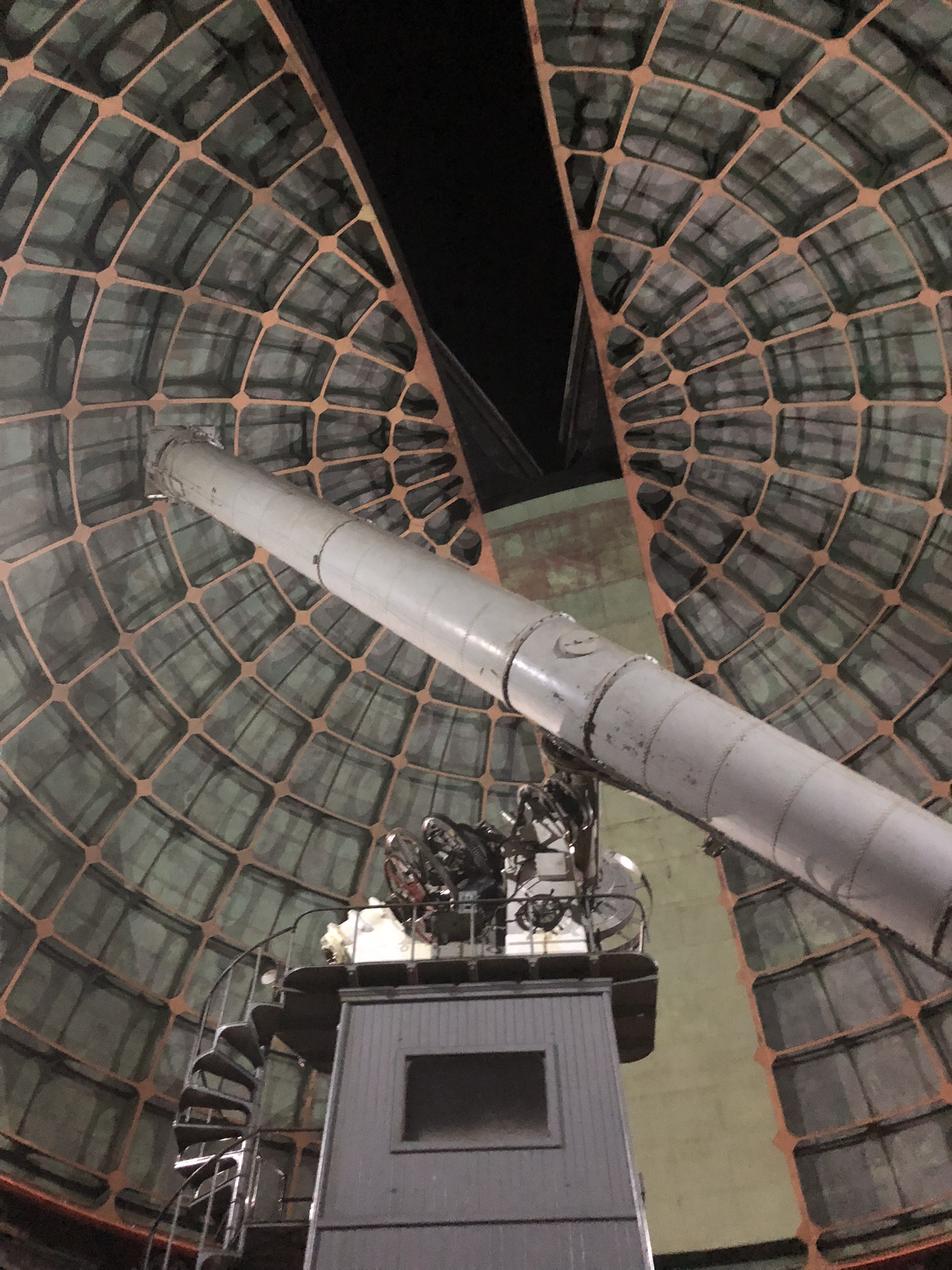
I was at an internship this past summer working for the Berkeley SETI Research Center at the University of California Berkeley. The BSRC is focused on the search for extraterrestrial intelligence (aliens), which is a search that I took part in. I was primarily focused on searching for signs of aliens in existing data and worked on software tools to perform these searches. This experience was not only important to my career, but also provided me with the opportunity to visit the area, including the Lick Observatory and Allen Telescope Array.
Would you like to give a shout-out to a professor, mentor, advisor, or someone at KU who has helped you?
I would have to thank Prof. Ian Crossfield for all the help he has provided me during my time here at KU. He is not only one of the best professors I have ever had, but he is also the mentor for my research project, where he has helped me through struggles relating to my research. Additionally, he has helped me with applications to internships by looking over my application materials and writing letters of recommendation for me.
What do you want to do when you graduate?
I would like to become a professor of astrophysics. I have really enjoyed my time with research at KU and would like to continue with research in the field. However, I also enjoy teaching, which I was able to do as a teaching assistant for a physics class, where I had to answer questions and explain concepts to people. Being a professor is the intersection of these two interests.